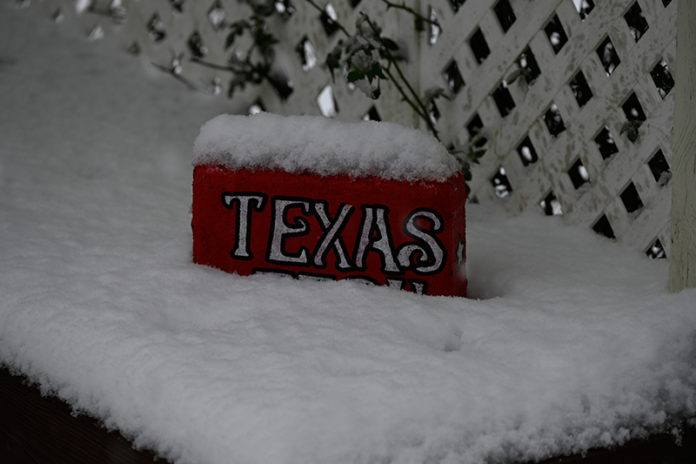In an era of global climate change, Texas has retained an unshakable allegiance to fossil fuel production and use. It brings to mind the joke about the man who tells his psychiatrist that his brother thinks he’s a chicken. The psychiatrist asks why the family hasn’t gotten him help. “We need the eggs,” the man replies.
Texas has long been vulnerable to climate change. It’s always been hot: Gen. Philip Sheridan said that if he owned hell and Texas, he’d rent out Texas and live in hell. It’s always been prone to drought. It’s always gotten hit by hurricanes.
Texans may have figured that at least global warming would mean pleasantly milder winters. But this winter, millions of them have been freezing in the dark.
The reasons are complex. The Texas power infrastructure was not designed for extreme cold. This freeze was broader, more severe and more prolonged than anyone can remember. It was a natural disaster that overwhelmed the usual protections.
Republican Gov. Greg Abbott made a fool of himself by blaming the shortfall on wind turbines that froze up. But plenty of frigid places — Finland, Nova Scotia, Alaska, Illinois — have no trouble relying on wind power.
The real problem is that ensuring the availability of energy, whether from fossil fuels or renewables, requires investments to make supply systems functional in extreme weather.
After a 2011 storm, the Federal Energy Regulatory Commission urged the state’s utilities to winterize equipment, but little was done. Why not? Because such an effort would have required officials to ask residents to pay more. The inaction fits neatly with the state’s prevailing approach to climate change, which is to whistle past the graveyard.
The buildup of greenhouse gases in the atmosphere was already making life harder in the Lone Star State. A report last year by the Office of the Texas State Climatologist at Texas A&M University found that the number of 100-degree days has more than doubled over the past 40 years and predicted it would nearly double again in the next 15. The state is likely to grow more parched — but also to get more extreme rainfall and more flooding.
Hurricanes will be worse.
They already are. Hurricane Harvey, which in 2017 displaced some 30,000 people and killed 106 in Texas, was the wettest storm on record in this country. A study by scientists at Rice University’s Severe Storm Prediction, Education and Evacuation from Disasters Center concluded that global warming played a part.
“Harvey was more intense because of today’s climate, and storms like Harvey are more likely in today’s climate,” said Antonia Sebastian, one of the authors.
This winter storm may also have a connection. A thawing North Pole may disrupt the jet stream, occasionally allowing giant blasts of cold air from the polar vortex to roll southward. (In 2019, one of these events sent temperatures in Chicago down to minus 23 degrees.) As global warming persists, it increases the chances of extreme weather of every sort.
Texas politicians, however, refuse to give up their romance with petroleum. Land Commissioner George P. Bush recently vowed to “fend off threats to the Texas oil and gas economy.” Abbott visited the Permian Basin to declare, “Texas is not going to stand idly by and watch the Biden administration kill jobs in Midland, in Odessa or any other place across the entire region.”
But fossil fuel use is largely responsible for the warming of the planet, which is certain to kill jobs, not to mention people. Dozens have died from this storm. Texas already faces the prospect of chronic water shortages. Excessive heat is bad for crops and livestock, which are a significant share of the state economy.
Parts of the state can expect more wildfires. Dollars spent to cool buildings as summers ramp up are dollars that can’t be spent on other goods and services. Oh, and let’s not forget the risk of extreme weather conditions, which demand costly investments to prevent catastrophes like the current one.
The natural impulse of politicians is to spare voters from sacrifice today, even if it means greater pain later on, after those politicians have moved on. That attitude, which has delayed federal action on climate change, is subsiding as Americans become more aware of the reality and the danger of global warming. But it has remained dominant in Texas.
Denial can be a comforting pastime. But eventually, it runs into cold, hard reality.


































